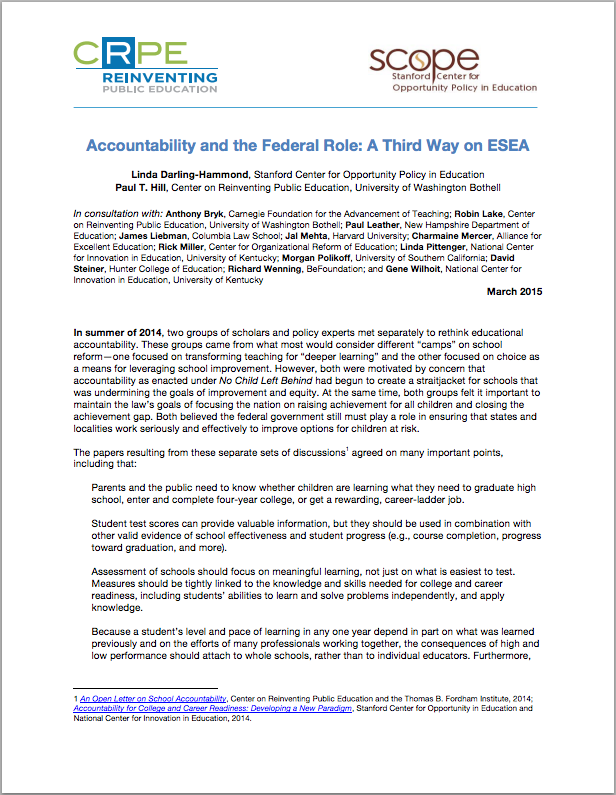Amid a highly polarized debate on reauthorizing the No Child Left Behind Act (NCLB), two different “camps” on school reform have found common ground on how to address the law’s approach to educational accountability.
In summer 2014, two separate groups of scholars and policy experts held meetings to rethink accountability. Both groups were motivated by concerns that NCLB’s approach has increasingly undermined school improvement and quality. The conclusions drawn from those separate meetings were surprisingly similar on many important points. This paper presents those areas of agreement on the goals of accountability and its role at each level of the public education system—the school, district, state, and federal government. The authors then lay out five guiding principles that should inform congressional action on NCLB to produce greater equity and excellence in our education system, with less federal overreach.





